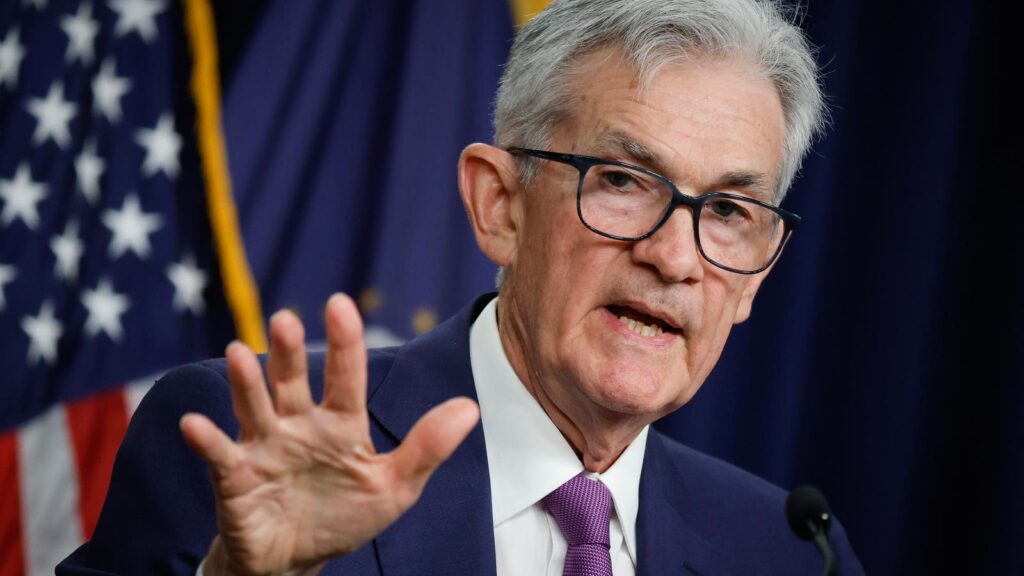Topline
Sweeping tariffs rolled out by the Trump administration this week are expected to raise inflation and slow economic growth, according to Federal Reserve Chairman Jerome Powell, who indicated Friday that the Fed is likely to keep its benchmark interest rate unchanged.
WASHINGTON, DC – MAY 01: Federal Reserve Bank Chair Jerome Powell announces that interest rates will … More
Key Facts
Powell described the economic impact of tariffs as “significantly larger than expected” and said import taxes are likely to lead to a jump in inflation, at least temporarily, during remarks in Arlington, Virginia.
After President Donald Trump’s tariff announcement, investors were hoping for up to five rate cuts this year to stimulate economic growth, but Powell indicated the central bank will leave interest rates unchanged at about 4.3% in the near future.
Powell’s remarks came after Trump called on him to “stop playing politics” and lower the target federal funds rate in a Friday social media post; Trump has repeatedly demanded the Fed to lower rates, despite the central bank’s political independence.
Trump’s tariffs will likely increase prices across imported goods, including cars, coffee and chocolate, while many retail brands that rely on factories in South Asian countries are expected to be impacted too, with countries like China, Vietnam and Taiwan all being slapped with tariff rates higher than 30%.
The annual rate of core inflation was 2.8% in February, still well above the Fed’s 2% target.
Crucial Quote
“Inflation is going to be moving up and growth is going to be slowing,” Powell said. “But it’s not clear at this time what the appropriate path for monetary policy will be, and we’re going to need to wait and see how this plays out before we can start to make those adjustments.”
Key Background
After the Trump administration levied tariffs on more than 180 countries Wednesday, global trade tensions escalated and all three major U.S. market indexes are down at least 10% from their record highs set several months ago, fueling recession fears. Most countries were hit with a 10% tariff on imported goods, but for those Trump deemed the “worst offenders,” the rate is even higher. China, for example, was slapped with a 34% tariff on its exports to the U.S. (on top of existing tariffs, bringing the actual rate to 54%). The country responded Friday with a 34% retaliatory tariff on all goods imported from the U.S.
This is a developing story and will be updated.
Futher Reading
Trump Shares Claim He’s Crashing Stock Market ‘On Purpose’ As He Lobbies For Emergency Rate Cuts (Forbes)
Here’s What Will Cost More After Trump’s Tariffs: Coffee, Cars—And Possibly A $2,300 iPhone (Forbes)
Stocks Dive Even Further On Tariffs—Nasdaq Enters Bear Market, Dow’s 2-Day Loss Extends To More Than 3,000 Points (Forbes)
Read the full article here
